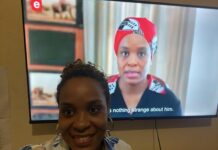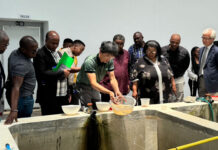My early years in the marketplace were spent as an insurance salesman. Selling insurance is arguably one of the most challenging professions. Unlike tangible products that can be held, tested or tasted, insurance offers something intangible, a promise, a safety net for a future that cannot be predicted.
To be successful, I had to educate my clients about something they often preferred not to think about: the risk of losing their ability to earn a living.
It was through this experience that I discovered one of the most profound truths of modern life—something that continues to shape my perspective and approach to this day. The greatest asset possessed by humankind in the modern world is not land, gold, or even education. It is the ability to earn an income.
| Eswatini Observer WhatsApp Channel
This income-earning ability underpins everything. It pays for our homes, our children’s education, our healthcare and even our dreams. Yet it is one of the least protected and most taken-for-granted assets we have. When I shared this insight with clients—framing the ability to earn an income as an asset—they were often struck by the clarity of that message. It changed the way they viewed their financial future.
A Fragile Asset
The ability to earn an income is not permanent. It can be cut short by events beyond our control—death, disability, illness, job loss or old age. Without proper financial planning, these events can and often do, drive families into poverty overnight.
This message is more urgent now than ever, especially in Africa and particularly in Eswatini.
The Kingdom of Eswatini, like many developing nations, faces a range of socio-economic challenges: high youth unemployment, limited access to capital and structural inequality rooted in generations of economic disparity.

In this context, financial planning is not just a personal strategy—it is a tool for national development.
Eswatini’s National Financial Inclusion Strategy (NFIS) 2023–2028 recognises this reality. One of its core pillars, Financial Capability & Consumer Protection, aims to embed budgeting, saving, investing and insurance into the very fabric of Eswatini’s communities—from schools to churches, from urban centres to rural areas.
A Modern Development Strategy
To reduce poverty and economic inequality, we must first change the way people think about money and its role in their lives. This starts with recognising income as an asset and then learning how to protect, manage and grow that asset over time.
Insurance is one of the most powerful tools for protecting our income. Life insurance ensures that dependants are not left destitute when a breadwinner passes away. Disability and critical illness insurance provide income continuity in the face of health crises. Unemployment protection plans can help individuals weather the storm of sudden job loss.
Yet insurance penetration in Eswatini remains low, largely due to limited financial literacy, mistrust of institutions and a lack of understanding of how these products work.
The NFIS addresses this challenge head-on through micro-insurance and simplified financial instruments tailored for low-income and rural populations.
Beyond Protection
While protection is the first step, financial planning also involves building wealth.
For too long, investment in Eswatini has been viewed as something exclusive to the elite or those with large amounts of disposable income. However, even small, consistent investments can lead to substantial returns over time.
Savings accounts, fixed deposits, unit trusts and pension funds are accessible to most working adults, yet uptake remains low.
We need to demystify investing. People must understand that investing is not gambling—it is a disciplined process of setting aside resources to generate future income.
Financial Planning and Generational Poverty
One of the most heartbreaking realities in Eswatini is the persistence of generational poverty. Families remain stuck in cycles where parents are unable to provide opportunities for their children, who then grow up to face the same struggles.
Financial planning can break this cycle. When families engage with insurance, structured savings and pension schemes, they create a path towards education, stability and financial independence.
Every household that engages in sound financial planning becomes a micro-engine of stability. Multiply this across communities and you begin to shift the national economic trajectory.
A Cultural Shift
Changing the financial future of Eswatini requires more than individual effort. It requires a cultural shift—a movement towards financial responsibility as a shared value.
This starts with education. Financial literacy should be compulsory in schools. Churches, employers and community organisations also have a vital role to play.
The NFIS embeds this vision into schools, workplaces and community centres, alongside consumer protection frameworks and gender-responsive inclusion.
The Role of Technology
In the era of digital transformation, technology has the potential to revolutionise financial access in Eswatini.
Mobile banking and fintech platforms can bring insurance and investment products directly to people’s phones. Imagine a mobile-based savings app for informal workers or a micro-insurance platform that lets farmers insure their crops via SMS.
This vision is already underway. Mobile account ownership in Eswatini has surged from 44% in 2011 to 87% by 2023, supported by enabling regulations and NFIS’s Fintech Strategy initiatives.
Way Forward
Considering the levels of poverty and inequality in Eswatini, financial planning is no longer a luxury—it is a necessity.
Our society must reframe money management from survival to sustainability, from crisis response to proactive planning.
Through NFIS-aligned actions, Eswatini can:
-
Frame income-earning ability as the crucial modern asset.
-
Drive insurance uptake via micro-insurance and tailored products.
-
Encourage investment through savings products, MSME finance and pension schemes.
This generation faces the urgent task of breaking the cycle of intergenerational poverty. Our greatest asset—our ability to earn an income—must be protected and nurtured.
Through financial planning, insurance, investment, education and collective action, Eswatini can reduce poverty, combat inequality and build a financially resilient nation.
Feedback & Correspondence
📧 Email: johnpires@live.com
📞 Mobile: +268 7606 5993
📲 WhatsApp: +268 7602 7758
Eswatini Observer Press Reader | View Here







